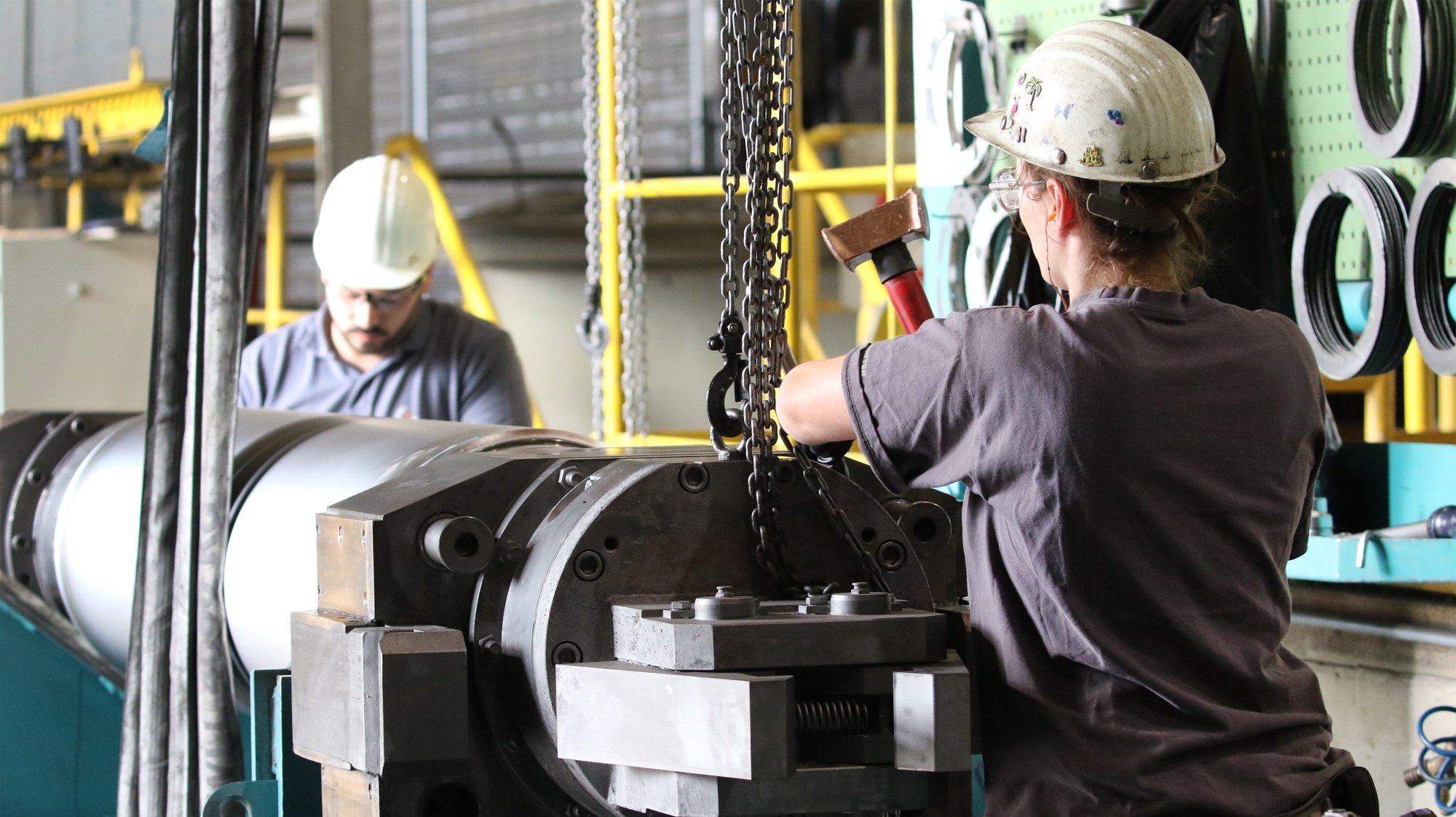The economic sentiment indicator returned, in August, worsening in the eurozone and the European Union (EU), mainly due to the “significant weakening” of European industry confidence due to global orders, the European Commission announced on Tuesday.
The data of this day published by the General Directorate of Economic and Financial Affairs of the European Commission, which is based on surveys of companies and consumers of August 2022, reveal that the indicator of economic sentiment “further decreased” than in the previous month, both in the eurozone (-1.3 points to 97.6) and in the EU (-1.0 points to 96.5).
This community executive service attributes the fall to “a significant weakening of confidence in industry and, to a lesser extent, in services, which was only partially offset by preliminary signs of stabilization in retail trade, construction and consumer confidence. ”.
In the case of industry, the decline (-1.4) occurs for the sixth consecutive month, since “managers’ assessments of the current level of global order books deteriorated further and inventories of finished goods were assessed as more abundantpointing to a weakening of sales”, he explains.
Still, production expectations for the next three months have risen, according to the European Commission’s Directorate General for Economic and Financial Affairs.
Confidence in the services sector also worsened (-0.9), due to the past business situation and the demand existing up to that time.
On the positive side, consumer confidence showed signs of stabilizing (+1.0) after 10 months of decline, as did retail confidence, which was broadly unchanged (+0.3) due to buoyant demand. . Confidence in construction also remained similar (+0.4), as more pessimistic assessments of the level of order books were offset by more optimistic employment expectations.
Confidence in financial services improved significantly in August (+7.3), due to more positive assessments of past demand, previous business conditions and demand expectations.
The percentage of builders that reported a shortage of material or equipment as a limiting factor in their construction activity decreased for the fourth consecutive month (22.6%, after 23.2% in July).
Among the largest EU economies, the economic sentiment indicator fell the most in the Netherlands (-4.8), Germany (-2.5), France and Poland (both -1.8), as well as in Italy. (-1, 2), while in Spain, on the contrary, there was a slight increase (+0.8).
In the case of Portugal, in August a monthly reduction of 0.7 pointsto 103.5.
Also valued in these monthly surveys, the employment expectations indicator stabilized in August after two months of significant losses, rising 0.8 points to 108.0 in the eurozone and 0.4 points to 107.3 in the European Union.
It is justified by the “more optimistic job prospects” in services, retail and construction”combined with a continued deterioration in employment expectations in the industry,” explains the Directorate General for Economic and Financial Affairs of the European Commission.
In Portugal, the employment expectations indicator fell 0.4 points in August to 109.6.
In these data, it is also disclosed that the indicator of economic uncertainty registered a slight decrease in August, from -0.6 points to 24.5.
Source: Observadora
